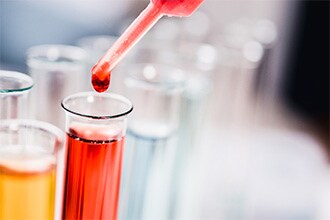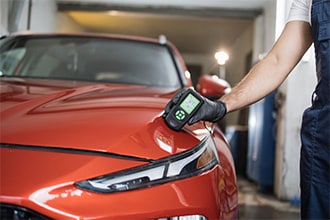Forensic Analysis
Forensic science is a field that uses scientific methods to analyze evidence to solve cases in criminal investigations. A variety of analytical instruments are used in this field, from testing for medicinal and toxic substances to identifying similarities and differences in human remains.

In recent years, new drugs with partially modified chemical structures, such as synthesized drugs, cannabis oils, and designer benzodiazepines, have become prevalent, and drug trends have diversified both domestically and internationally. NMR and mass spectrometers are used for structural estimation and identification of these medicinal toxicants.

Abuse of stimulants, narcotics, and psychotropic drugs, as well as poisoning associated with drugs administered for criminal or suicidal purposes, have become major social problems. Since drug analysis requires rapidity, a system that can provide results to police, and forensic scientists in a timely manner is required. In the analysis of drug substances in biological samples, it is important to detect a wide range of drug substances without being affected by components in the biological sample, and mass spectrometers, such as GC/MS and LC/MS, are used for drug screening.

Measuring alcohol in blood is used to test for drunk driving, to determine legal responsibility and to treat acute alcohol intoxication. Volatile poisons, such as cyanide and azide, are also measured to detect for toxic administration as they are often used for criminal purposes. These tests are mainly performed using GC or GC/MS. In many cases, a headspace sampler is used as a pretreatment system.

To identify the remains at a crime scene, a wide variety of samples are subjected to dissimilarity identification. Depending on the size of the foreign objects, their condition, and if there are attached components, examinations require various analytical instruments for multifaceted evaluations.



